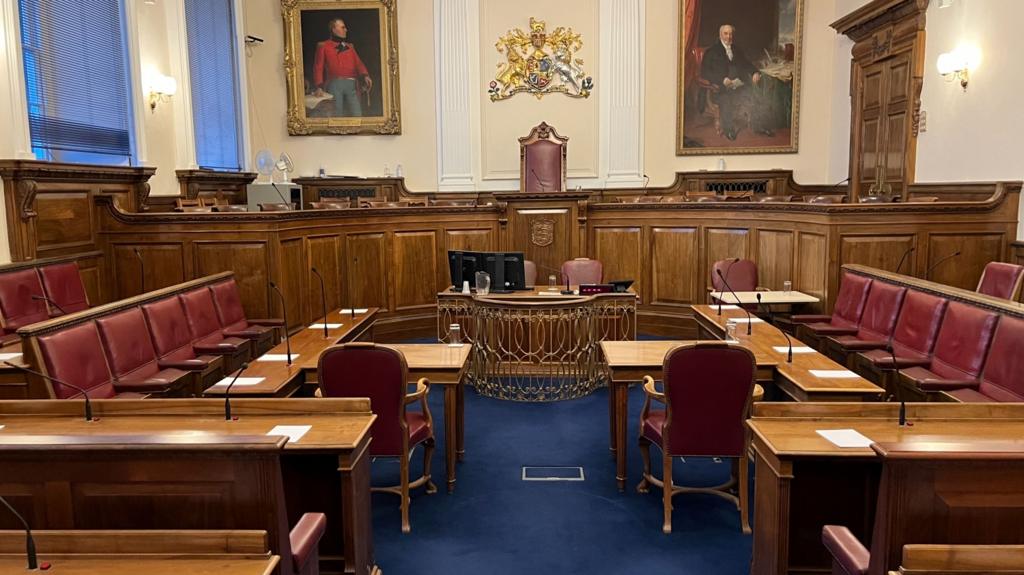Guernsey Political Update: 10 Key Developments Shaping the Island’s Future
As one of the world’s few remaining non-party parliamentary democracies, Guernsey has always stood out for its unique political structure. But 2025 has brought a wave of change that may reshape how the island is governed for decades to come. From elections and governance reform to housing debates and political accountability, Guernsey is at a critical turning point.
Here’s a rundown of 10 major political developments in Guernsey that you need to know about right now.
1. A Landmark Election in June 2025
Guernsey’s general election in June 2025 marked only the second time voters used the island-wide voting system, where all citizens can vote for any of the 38 deputies. It also saw a significant shift in the political landscape:
Lindsay de Sausmarez topped the polls with the highest number of votes.
Voter turnout dropped slightly from 2020 (around 72% in 2025 vs. 79%).
Several senior politicians, including Lyndon Trott, Al Brouard, and Peter Roffey, stepped down, opening the door for fresh leadership.
This election symbolized both continuity and a new chapter for Guernsey’s governance.
2. The Rise of Political Movements and Parties
Historically, Guernsey has avoided party politics. But that may be changing.
In late 2024, Future Guernsey, a political movement, launched with support from experienced figures like Gavin St Pier.
By April 2025, Forward Guernsey was officially registered as a political party and fielded four candidates in the election.
Their manifesto focused on housing, healthcare, climate change, and public finances.
Whether parties will reshape Guernsey’s political culture remains to be seen, but their rise is already influencing how policy is debated.
3. Calls for Governance Reform Intensify
Guernsey’s committee system—which lacks a traditional cabinet or head of government—has faced growing criticism for being slow, unclear, and inefficient.
Business groups like the Institute of Directors have called for more financial transparency and accountability.
Many believe the island needs a more defined executive leadership model to handle growing policy complexity.
While no concrete reforms have passed yet, political momentum for change is clearly building.
4. Housing and Development: The Island’s Hot Button Issue
Housing remains one of the most contentious and urgent issues in Guernsey:
New frameworks for development in St Peter Port and St Sampson’s aim to deliver up to 1,600 homes.
Local residents have raised serious concerns about traffic, infrastructure pressure, and lack of public consultation.
The Guernsey Development Agency (GDA) is pushing forward with redevelopment plans, especially along the island’s east coast.
Balancing housing demand with environmental and infrastructure sustainability will be a top political challenge.
5. Public Officials Face Increasing Threats
A worrying trend has emerged: several Guernsey deputies have reported being threatened, harassed, or abused—both online and in person.
Incidents have included threats toward families, aggressive confrontations, and even cars driven toward officials.
Deputies like Carl Meerveld and former Chief Minister Peter Ferbrache have publicly spoken out about the growing hostility.
These attacks are raising alarm bells about the safety of public service and the overall tone of political discourse on the island.
6. Scandal Shakes Public Trust
In August 2025, former Chief Minister Jonathan Le Tocq was charged with possession of over 1,400 indecent images of children—a shocking development that has stunned the island.
The case is ongoing and Le Tocq has been remanded in custody.
The charges have prompted calls for better vetting, oversight, and public accountability in political institutions.
This scandal underscores how fragile public trust can be, and how quickly it can be undermined.
7. Inter-Island Tensions Flare Over Ferry Services
Guernsey and Jersey have generally maintained cooperative ties, but recent disagreements have exposed strain.
A public row erupted between Guernsey’s Neil Inder and Jersey’s Kirsten Morel over freight ferry proposals.
Guernsey’s Chief Minister Lyndon Trott later apologized for how the disagreement played out.
With both islands relying heavily on shared transport links, political diplomacy will be crucial going forward.
8. Financial Pressures and Fiscal Reform
Guernsey’s economy is stable, but the island faces long-term fiscal pressure from rising health costs, infrastructure demands, and an aging population.
There’s increasing debate over how to raise new revenue—whether through higher taxes, economic diversification, or spending cuts.
The Institute of Directors has urged greater clarity and discipline in the States’ accounts and financial priorities.
Striking the right balance between economic competitiveness and social investment will define the next political cycle.
9. Representation: Gender Gaps Still Exist
As of 2025, only 8 out of 38 deputies in the States are women—around 21%. This gender imbalance continues to spark concern.
Barriers to political participation for women include campaign demands, public scrutiny, and a lack of structural support.
Calls for more inclusive recruitment, mentoring, and candidate support programs are growing louder.
Improving representation in politics will be critical for ensuring policies reflect the diversity of Guernsey society.
10. Climate and Infrastructure Planning
Guernsey’s geographical location makes it vulnerable to climate change impacts, particularly coastal flooding and erosion.
The Guernsey Development Agency is tasked with long-term infrastructure and harbor resilience.
Political consensus is forming around the need for sustainable infrastructure investment, though funding remains limited.
As climate challenges intensify, political decisions made now will shape the island’s future for generations.
Conclusion: A New Era for Guernsey Politics?
Guernsey is entering a new political phase—more dynamic, more contested, and arguably more uncertain. The traditional model of non-party, consensus-driven politics is being tested by modern demands for clarity, accountability, and action.
From the rise of political parties to pressure for housing, governance reform, and climate action, the next few years could bring major shifts. How well Guernsey’s institutions respond will determine whether the island thrives—or struggles—in a fast-changing world.
Stay tuned to 10most.net for more updates on Guernsey’s evolving political landscape. Have a view on these issues? Let us know in the comments.
http://”Guernsey political update”



